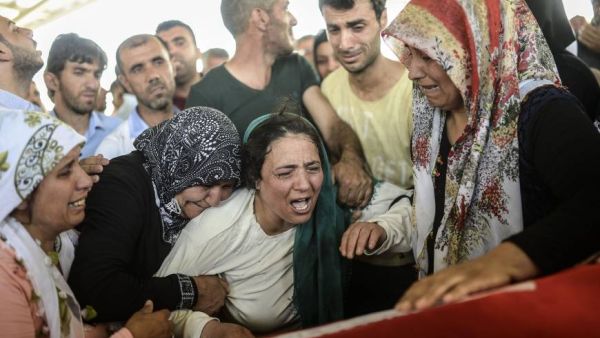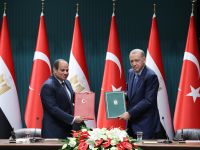"What does the state want with dead bodies?": Suruç and the history of unmournability
Since 20 July, when a suicide bomber in the town of Suruç killed thirty-two socialist activists on their way to help rebuild Kobanê in northern Syria, Turkey has devolved into a de facto state of emergency. While Turkish police began operations across the country and have arrested approximately one thousand leftist activists and revolutionaries affiliated with the Kurdish movement under the guise of disarming and dismantling ISIS on the domestic front, protests over the Suruç Massacre have been brutally suppressed by the same security forces.
The Suez Canal in historical imaginary
“The successful passing of three ships through the Canal during Saturday’s trial was equivalent to the passing of the nation from darkness to light,” the head of the Suez Canal Authority said in a press conference following a trial run of the new waterway on Saturday, July 25.
Keeping up with the Saudis: how is the monarchy surviving the oil drop?
Google Saudi Arabia this week, and you will find oil headlines stealing the spotlight once again. In the span of just 24 hours on August 5 and 6, The Economist, the Financial Times, and the Telegraph’s Finance page all ran stories on the Kingdom’s oil-induced money woes.







